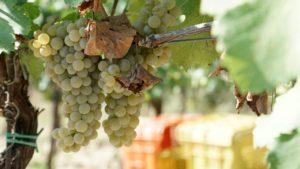Wine tours in Tuscany - About Angie - +39 3333185705 - angie.chianti@gmail.com
Post war years have seen dramatic changes and improvements in our lives in terms of socio-economic conditions. Moreover an unprecedented growth in production and world trade, as well as the growing integration of economies happened. Technical progress has also improved the life of those involved in the agricultural industry with special attention paid to food production. In particular, the launch of artificial fertilizers and the extensive use of pesticides have made farmers’ lives less heavy and certainly helped them increase their efficiency in their everyday work. Nonetheless, the use of such chemicals with time destroyed all the natural nutrients and microorganisms to be found in the soil. Consequently, they left it barren and depleted of its natural biological life.
New wine making approach
More recently, roughly three decades ago, a new movement, known as the natural wine approach, was started and it is still a relatively new growing phenomenon. Such a new methodology in winemaking was very likely triggered by the damage the affected vineyards had seen over the years due to the increased use of artificial pesticides. So much damage that farmers in disparate parts of the world started to do what it felt it was the right thing to do, that is wine made as nature intended, i.e. a force of nature organic wine. Indeed, at the same time, consumers had already become more educated drinkers and eaters and had started to make healthier food as well as drink choices.
Organic, biodynamic and natural

At this point it is important to make a distinction among three winemaking approaches that have in common and share the very same result: a wine that is made using good grapes and that is allowed to ferment naturally. The three methods have in common a shared practice that encourages a natural harmony between man and nature and that respects the ecosystem. Namely the three processes of making wine are: organic, biodynamic and natural and they all relate primarily to farming. Moreover, they share the approach that excludes the use of chemicals and pesticides.
Biodynamic method
This said, the biodynamic agriculture methodology goes even further and presents stricter rules. Such regulations lead to the adoption of a more holistic approach that advises to prevent rather than treat the soil and the vine. Interestingly enough, organic and biodynamic wines have also differences that set them apart. In particular, this becomes clear when it comes to the use of sulphites. While organic producers allow a certain amount of sulphites to prevent oxidation and bacterial deviations, the biodynamic wine makers allow even lower levels of sulphites.

Natural method
And here comes the natural wine back-to-basics approach. It shares most of the techniques allowed by organic and biodynamic wine producers but it differs from them greatly at the same time. On top of adopting stricter rules that mainly focus on the vineyard, the natural wine approach also extends its very own standards onto the bottling process as well. Besides this, another major difference is the process of the wine making itself which rejects either the addition or the exclusion of anything at all from the grape juice. This is to say that only the natural yeast that comes from the grapes or from the vineyard is allowed.
What set natural method apart
The wine is also unfiltered so it may well be the case that sediment or grape skin can be found in the final product. Moreover, what really sets the natural wine artisans apart from their organic and biodynamic counterparts is that they would really go a long way to stick to their methods, so much that they would even put at risk the entire wine production.
Natural wine these days does not necessarily mean pressing grapes by foot in a stone vat. What really sets natural wine apart from other wine types is to be found in the winemaking principles themselves. Ultimately, natural wine is made without using any chemicals nor preservatives. In a nutshell, a wine made with hand-picked untreated grapes, fermented juice with nothing added and a lot of care and attention to preserve the balance among mankind, Nature and environment.
The leaders of natural organic wines
Interestingly enough, Italy and France are the countries featuring the greatest number of micro regional wineries producing natural organic wines. In particular, Tuscany has a leading role in producing natural organic red wine without solphites.
Book now your special and exciting organic wine tour: Chianti and Super tuscan Wine Tour from Florence, 3 wineries





